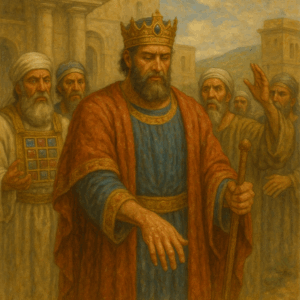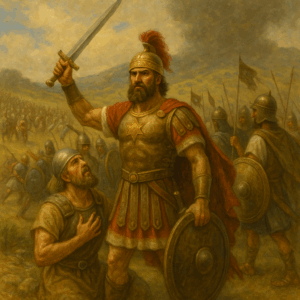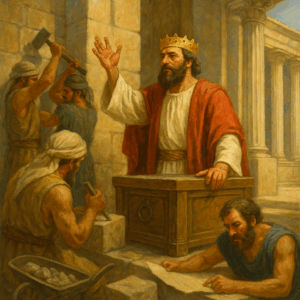Introduction:
Exodus Chapter 4 is a pivotal chapter in the saga of Moses, marking his transition from doubt to determination. In this chapter, Moses’ dialogue with God reveals the common human experience of reluctance and self-doubt when faced with a daunting task. This chapter not only highlights the miraculous signs God provides to Moses but also underscores the themes of trust, obedience, and empowerment in the face of uncertainty.
Moses’ Reluctance and God’s Reassurance:
The chapter begins with Moses expressing his doubt about the Israelites believing that he has been sent by God. In response, God provides Moses with three miraculous signs: turning a staff into a serpent, making his hand leprous and then healing it, and turning water from the Nile into blood. These signs serve as divine assurance to Moses and proof of God’s power to the Israelites.
Key Themes and Contemporary Reflections:
Overcoming Self-Doubt:
Moses’ initial hesitation and self-doubt resonate deeply with many. His concerns about his ability to lead and be believed highlight a common human experience.
Modern Application: This narrative encourages us to confront our insecurities and fears, reminding us that self-doubt does not disqualify us from achieving great things. It’s a call to recognize and embrace our potential, even when we feel inadequate.
Divine Empowerment:
The miraculous signs God gives to Moses symbolize divine empowerment. These signs demonstrate that, with divine support, extraordinary tasks can be accomplished.
Modern Application: In our lives, we may not witness miraculous signs, but we can find empowerment through faith, inner strength, and the support of our communities, enabling us to tackle challenges that seem insurmountable.
The Role of Community and Partnership:
God’s appointment of Aaron as Moses’ spokesperson shows the importance of partnership and community support in overcoming personal limitations.
Modern Application: This aspect of the narrative highlights the value of collaboration and seeking support. It encourages us to seek and cherish partnerships and communal relationships, recognizing that we often achieve more together than alone.
Trust and Obedience:
Despite his initial reluctance, Moses’ decision to follow God’s command exemplifies trust and obedience. It signifies a willingness to embark on a journey of faith, despite uncertainties and fears.
Modern Application: The story of Moses in Exodus 4 teaches the importance of trust and obedience in our personal and spiritual journeys. It’s an invitation to step out in faith, even when the path ahead is not fully clear.
Conclusion:
Exodus Chapter 4 is a powerful testament to the transformative journey from doubt to purposeful action. In Moses’ story, we find echoes of our struggles with self-doubt and hesitation, as well as the power of divine assurance and the strength found in supportive partnerships. As we navigate our own life’s challenges, may we draw inspiration from Moses’ journey, finding the courage to overcome our doubts and embrace our calling with trust and faith.






